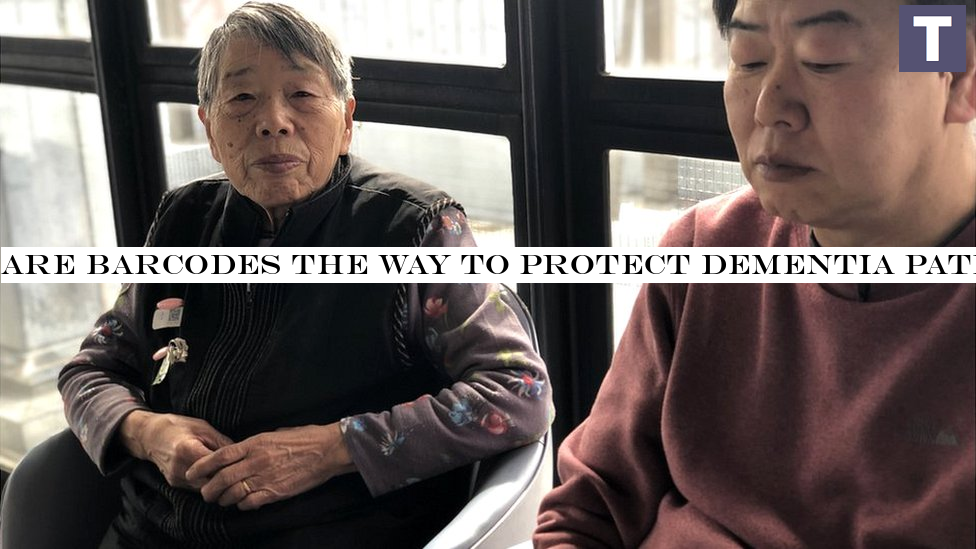INSUBCONTINENT EXCLUSIVE:
Media playback is unsupported on your deviceMedia captionHow Japan is keeping people with dementia safeEach year in Japan thousands of
elderly people with dementia go missing, hundreds are never found alive again
Japan has the world's oldest population but also some of the most advanced technology and they're using it to help keep people with
dementia safe.People like Mrs Itou who lives in the city of Matsudo
The first time she went missing her son who cares for her went driving around looking for her in the places she normally goes.That was no
easy task as Mrs Itou loves to walk and can cover a hundred kilometres a month.That time his mother came home, but since then she's gone
missing four more times as her dementia has worsened.'Constant vigil'The stress of caring for someone with dementia is well known to Nobel
prize-winning scientist Randy Schekman whose wife had Parkinson's disease and dementia before she died."You have to keep a constant
vigil," he tells me at a meeting in Japan of Nobel laureates and other eminent people to discuss the future of ageing.Media playback is
unsupported on your deviceMedia captionThe Nobel prize-winner tackling Parkinson's disease"As my wife's dementia progressed I couldn't
let her go to the restroom when we went out together
She would go in go into a stall, lock the door and then not be able to unlock the door - she was trapped inside a women's restroom."Prof
Schekman describes the projections of the rising number of people with dementia as a crisis akin to climate change because of the stress it
will place on those caring for them and the economic consequences as people leave work to care for loved ones.He is at the start of a
10-year project to tackle the basic science behind Parkinson's disease which will gather teams of scientists from around the world
The project's reported multi-billion dollar budget is being provided by Google co-founder Sergey Brin
Dementia techMeanwhile in Japan, people like Mrs Itou are using new practical solutions to deal with memory loss and the need for a constant
vigil.Image caption
The QR codes pattern are attached to badges and can be read by a smartphone
The
local government provides people with dementia and their carers, with badges they can wear
They display a QR code - a square image similar to a barcode - which can be read by anyone with a smart-phone
The badges have helped Mrs Itou get home the last two times she went missing
One of the inventors of the badges, Haruo Hidaka had the idea after watching the grandmother who raised him suffer with dementia
He believed in the idea so much that his team developed a prototype that he personally went to sell in 630 towns and cities across Japan
The idea was a success and the company he worked for has been bought by the Japanese pharmaceutical company Toho Holdings
Image caption
Haruo Hidaka is one of the inventors of the QR codes which are being used to help keep people with
dementia from getting lost
Talking to me at the company's Tokyo headquarters, Mr Hidaka says as well as his grandmother
the idea was also sparked by the case of someone who died in their home and whose death went unnoticed for weeks.Tackling lonely deaths This
is a common problem in Japan and it's another problem that the city of Matsudo and many others are tackling
It's a rainy Friday afternoon and a group of 10 Matsudo residents are putting on orange vests and preparing to head out around the city
The volunteers are just some of thousands across Japan who have been through a programme of dementia awareness
Image caption
Neighbourhood dementia awareness teams in Matsudo go door-to-door in the city checking that people are
safe
Today they're going door to door with flyers for a pop-up cafe
While posting the adverts they're also keeping an eye out for houses where there are telltale signs of problems, like mail piling up
That could be the sign of someone inside in trouble or perhaps even dead
"One shouldn't be pointing fingers, but I think you can tell straight away," says Manami Yoshii."By putting flyers into the postbox, we are
able to check whether their postboxes are overflowing
And through that we would be able to tell if something might have happened to the resident."The pop-up cafes they are advertising are a
place where older people can come and get lunch and a chat
Cafe connectionsWhile developments like QR codes are useful, they're not the full solution, according to Akiko Saito who runs one of
Matsudo's dementia cafes."These days our relationships with our immediate neighbours are fading," she says as about 20 local pensioners
dig in to a typical multi-dish Japanese lunch
Image caption
Akiko Saito runs one of Matsudo's dementia cafes, she believes that we can't just on technological
solutions for helping an older population
"We are connected through things like social networking sites, but in case there
is a disaster or if something happens, I think it's going to be more and more important in future to have a space where you can build
relationships between people so that neighbours would be able to help each other out."With our life expectancy rising in most countries, the
number of people with dementia is expected to increase dramatically in the coming decades
The solutions they have found in super-ageing Japan are already being copied in other countries and are likely to spread even further
Additional reporting by Tamasin Ford and Erica SymondsThis content was created as a co-production between Nobel Media AB and the

